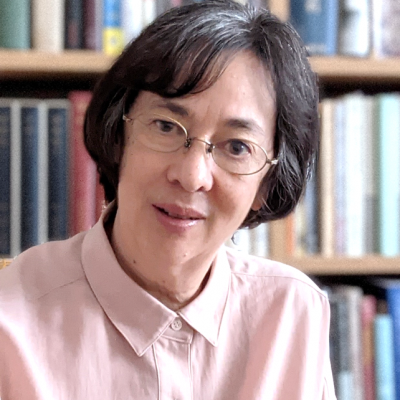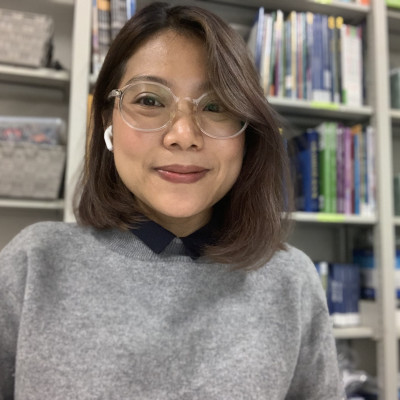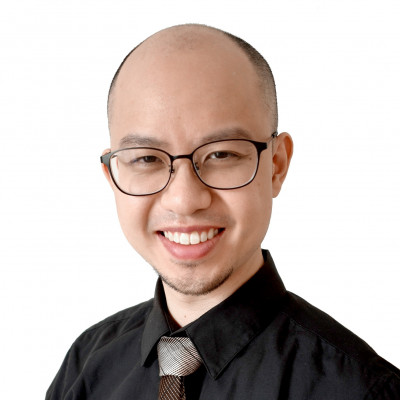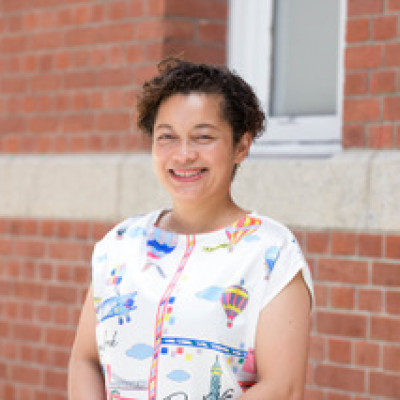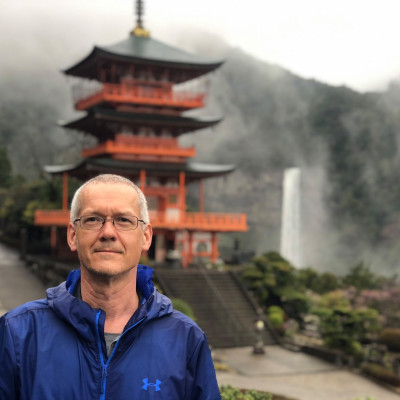Sessions / English (Bilingual Q&A)
ELT in Japan and the New Black Diaspora: (Re)imagining Work, Home, and Belonging #3124
This presentation highlights the experiences of a community of Continental African, Afro-Caribbean, and Afro-Western English teachers currently working and residing in Japan. I explore their shared professional and pedagogical experiences in a variety of contexts nationwide, as they conceptualize their roles as language teachers and renegotiate what the notion of "home" means to them as members of a transnational diaspora. Learning about the collective experience of these individuals has significant implications for the promotion of multiculturalism and diversity through ELT in Japan, a point that I explore in more depth.
Home is Where You Feel Safe and Supported: Vulnerabilities and Empowerment of Foreign Women in Disasters and Crises in Japan #3132
Disasters and crises are becoming the norm. Disasters and crises have a social nature and the concept of “home”, both as an infrastructure and a relational concept, is crucial to address disaster challenges. In particular, the association of women with the image of “home” often grounds discourses of women as weak and vulnerable. Are women really weak and confined to the domestic space, or is it a narrative that teaches them/us how they/we are vulnerable? In her PhD at Kyoto University, Irene Petraroli analysed women’s vulnerabilities in disaster preparedness in Kyushu and Kansai, Japan. She found that some aspects of female vulnerabilities and empowerment overlap in the home environment: women are expected to provide for other family members, but they are given insufficient information and lack decision-making power at the local and governmental level. Nina Hakkarainen founded Foreign Women’s Association Paruyon in 2007. Paruyon’s goal is to support foreign women by providing opportunities to meet other foreign and Japanese women, receive and exchange information, and build a community, “a home” to turn to in times of crisis. The pandemic has highlighted vulnerabilities foreign women face in Japan. It has increased their isolation as well as their dependency on their spouses/partners/children. Nina will talk about these vulnerabilities and share her own journey of building safe spaces, “homes away from home” for foreign women in Japan.
The presentation will be in English but the presenters will also accept questions in Japanese.
Four Perspectives on Home: Seeking, Creating, and Sharing Our Safe Spaces #3129
In this session, four panelists will discuss what experiences and resources have helped them develop skills at creating and maintaining safe, welcoming, home-like spaces.
Jackson Koon Yat Lee: I will share my personal experience as a Hong Kong Canadian living in Japan and the ever-changing meaning of home throughout my life, as well as how the journey has led to my on-going engagements in DEI-related topics in professional and social lives in hopes to demonstrate solidarity and inclusion for others with blurred visions of home.
May Kyaw Oo: In my talk, I will discuss the fluidity of identities connected to the concept of displacement due to political unrest, and how existing in a liminal space impacts a person’s identity as a person, as an educator, and as a researcher. I will also discuss the importance of having an online community where one feels safe and respected when practicing self-disclosure and expressing opinions.
Jenny Morgan: I will share how my concepts of home and community have shifted throughout my life due to multiple layers of identity categories that have involuntarily worked to position me at times as an insider, and at others, an outsider. I will discuss how this forced positioning and fluid and flexible perspectives inform how I co-create with learners a sense of home in their classroom communities of practice.
Gerry Yokota: Most university students are at a transitional stage of life, many leaving home for the first time and/or uncertain where they are headed after graduation, and many English language educators are in similarly liminal positions. I will demonstrate how I use applied cognitive linguistics, especially attention to the power of metaphor, to facilitate classroom discussions about shifting experiences and perceptions of home and community, with reference to cultural expressions found in film, music and poetry by or about exiles and refugees.
Mediating Between Cultures: Intercultural Parents Raising their Children Transculturally in Japan #3134
The impact of increased ethnic diversity in Japan has attracted considerable attention in the field of multicultural studies in Japan, with rapidly changing demographics, social structures and ideologies as a result of the growth of immigration in the country and worldwide. Immigration and its outcomes have also initiated a new trend towards an increase in intercultural marriages in Japan. In particular, the increase in the number of families with multicultural backgrounds in Japan has been the focus of much research in recent years. Raising children transculturally, which adds several new dimensions to the dynamics of parenting, can be challenging for multicultural families. Consequently, the intercultural parenting experience is emerging as an important issue in Japanese society. What are today's trends and challenges of intercultural parents raising their children in two or more cultures in Japan? Other than cultural background, do systemic and contextual factors also impact the way parents raise their children? The first half of this presentation, will be focused on reporting findings from a small-scale qualitative study of the experiences of three intercultural couples raising their children transculturally in Japan. The second half of this presentation will be interactive with participation from the audience to discuss the common benefits and opportunities of transcultural parenting as a source of strength rather than a weakness.
Singled Out: Societal and Structural Barriers Facing Foreign Women in Japan Singled out 日本で働く外国人女性が直面する社会的・構造的な障壁 #3130
Ten years on from the 2012 Global Summit of Women in Tokyo event, where former PM Shinzo Abe proclaimed his commitment to promote “a society where women can shine,” Japan’s ranking in the WEF’s annual Gender Gap Report has tracked a drop from 101st place (2012) to its current 120th ranking (2021) out of 156 countries. News coverage and academic circles continue to debate the uneven progress that is being made for Japanese women in contemporary Japanese society, but there is little attention paid to the lived experiences of foreign women who have made the decision to make Japan their home. In this roundtable, four female, long-term residents of Japan, discuss the social and structural barriers that obstruct their efforts to live in, and contribute to, their adopted country. First, Kristie Collins presents how conceptions of Japan as ‘home’ have shifted for some single foreign women over the pandemic, and how this may influence their personal and professional futures. Next, Herb Fondevilla shares her experience as an academic in a profession that favors and is dominated by white males compounded with issues related to native-speakerism and racial stereotypes. After that, Tanja McCandie discusses her experience navigating the academic system, embedded with gender barriers that affect females, but even more so for mothers and other primary caregivers. Finally, Antonija Cavcic explores the issues faced by married binational LGBT couples whose legal and legitimate marriages abroad are not recognised by Japanese law. The session will conclude with Q&A discussion to address all these groups and more who call Japan home, but remain “singled out”.
安倍晋三元首相が「女性が輝く社会」の推進を宣言した2012年の「グローバル・サミット・オブ・ウーマン in Tokyo」イベントから10年、WEFが毎年発表する「ジェンダー・ギャップ報告書」における日本の順位は、156カ国中101位(2012年)から現在の120位(2021年)へと下落を辿っている。現代の日本社会で日本人女性がどのような状況に置かれているかについては、報道や学術界で議論が続いていますが、日本を故郷とする決断をした外国人女性の生活体験については、あまり関心が持たれていないようです。このラウンドテーブルでは、日本に長期滞在している4人の女性が、自分たちの国で生活し、貢献しようとする努力を阻む社会的・構造的な障害について議論します。まず、クリスティ・コリンズは、パンデミックによって、日本が「故郷」であるという概念が、独身外国人女性にとってどのように変化したか、また、このことが彼女たちの個人的・職業的将来にどのような影響を及ぼす可能性があるかを説明します。次に、ハーブ・フォンデヴィーラは、白人男性が支配的で、ネイティブスピーカーや人種的ステレオタイプに関連する問題が複合的に存在する職業における学者としての経験について語ります。その後、タンヤ・マッキャンディが、女性、特に母親や他の主要な介護者に影響を与えるジェンダーの障壁が組み込まれた学問体系をナビゲートする経験について説明します。最後に、アントニア・カブシクは、海外で合法的に結婚した二国間のLGBTカップルが、日本の法律で認められていないために直面している問題を探ります。セッションの最後には、日本を故郷としながらも「排除されたまま」であるこれらのグループやその他の人々について、質疑応答が行われる予定です。
Language Acquisition as Identity Formation: What it Means for Pedagogy #3149
Language acquisition is a complex process. While there have been many constructs designed to explain the process, one promising one is identity formation. This posits that language is formed alongside a new identity. The presenter will explain the concept of multiple identities, and how it fits into this theory. Furthermore, the presenter will explain what exactly this looks like in the language classroom. This discussion will be supported by literature from feminist, ethnic minority, and LGBTIQ perspectives. The presenter will follow-up with a discussion of why identity should be given greater weight in the language classroom. Specifically, the presenter will discuss why inclusive materials that promote critical thinking. Inclusivity must be seen from a dual perspective. First, inclusivity is important so that students find their home in the materials. Second, inclusivity is important so students can see their imagined community in the materials, finding a new home. Finally, the presenter will offer three pedagogical tools designed to exploit this process: narrative engagement, extended roleplay, and collaborative story writing. If there is time, the audience will have the opportunity to engage with these approaches before a discussion of what it means for their practice.
Who am I: A Returnee’s Search for Cultural, Linguistic and Occupational Identity #3143
The presenter’s life has been full of identity crises and self-doubt. But after five decades of struggle, she has found peace and belonging. Cultural and linguistic identity began at age six when due to her father’s job, the presenter moved from Japan to Canada and the United States. As her language ability evolved from monolingual Japanese to fully bilingual, she struggled with cultural identity especially after facing racism from Americans and Canadians. When she returned to Japan at age 13, she faced even more discrimination as a returnee, complicating her identity. After 15 years of not fitting in anywhere, she finally found “home” at a private high school that accepted returnees (Doshisha Intl High School). There, she learned that being different made her unique. As an adult, she struggled with occupational identity in her 20s and 30s after working in the media and NGOs and suffering health problems due to overwork. She began teaching English at age 35 and found her true calling. When she obtained her Masters degree in education at age 42, she feared she wouldn’t get any university work due to that ageism and lack of experience. But employers appreciated her past work experiences, and she now teaches English, journalism, translation skills and interpretation skills at four universities in Tokyo. This presentation will discuss how the presenter overcame racism, ageism and conclude that being atypical can be a strength.
Leaving the NEST: Reflections as an American Teacher of Japanese in an Australian High School #3151
In recent years, there has been growing recognition of nuance in the dichotomy between NESTs (native English speaking teachers) and NNESTs (non-native English speaking teachers). However, even as the complex definition of a native speaker is explored and scrutinized, it can still be difficult for those who identify unambiguously as a NEST or NNEST to understand the challenges and strengths of the other side. The presenter, a NEST from the US, had a chance to bridge this gap when he was offered the opportunity to teach Japanese language classes in an Australian high school. Over a two week period, he taught beginner level classes to three groups of thirty 7th graders and one group of twelve 8th graders. In this interactive presentation, he describes how the experience of teaching a foreign language in a foreign country broadened his understanding of home. He shares the details of lesson planning and delivery, highlighting moments affected by his status as a non-native Japanese speaker. He then explains how this influenced his English teaching practice and helped him to better understand and embrace differences with NNESTs in Japan. Finally, participants are invited to reflect on where their own home bases lie and to critically examine implicit biases they or their colleagues might hold from their own experiences with native speakerhood.
Female Non-WEIRD Students’ Experiences in Japan #3144
The number of students coming from abroad to attend Japanese universities has increased significantly over the last 10 years following government initiatives regarding globalization. Many of these students come from non-WEIRD (Western, Educated, Industrialized, Rich, and Democratic) countries and engage in English-medium learning at the graduate level. This presentation will discuss the present situation in Japan regarding international students, and the flow of students globally, with a particular focus on female students. Then the experiences of 3 female graduate students studying at a Japanese national university that focuses on STEAM subjects will be examined. The participants come from diverse backgrounds, and semi-structured interviews were used to explore their experiences in their new environment. The narratives were analyzed using grounded theory and the discussion of the results explores the push factors that encouraged the participants to leave their home countries, and the pull factors that attracted them to Japanese higher education and their new homes. Additionally, whilst acknowledging the problems female international students have in Japanese universities positive aspects of studying in Japan will also be highlighted.
Finding Home as a Life-Long Learning Process - My Journey in Finland #3145
As a Japanese woman and an immigrant, living in Finland and working at an NGO, I would like to share my journey of finding a place where I feel I belong to as part of a life-long learning process. Also, I have been dealing with mixed feelings from having to establish a place where life goes on in Finland while not being able to physically be at the home where my family lives in Kyoto.
I see my journey in Finland as a learning process, because it involves continuity such as understanding the country’s system, culture, learning the language, making new friends and finding work. It has been a process for me to increase my feeling of belonging alongside finding people who I care about and who are supportive of me.
I would like to also emphasise the importance of taking care of myself in a rapidly changing world, where in the middle of chaos, I seek a state of mind that can focus on positive things and reflect on things to improve on. This ability has become crucial to balance a life where the physical home exists somewhere outside of where I currently am.
I hope to have active discussions with participants and exchange thoughts on the learning processes behind finding one’s own home.
A Passion for Japan: The Long Journey to Calling Japan Home #3153
For foreign residents of Japan, when and why do we make the transition from just saying we live in Japan to calling this country “home”? According to Lysgaard’s model (Lysgaard, 1955), expatriates go through four stages of culture shock: honeymoon, frustration, adjustment, and acceptance. It would be an oversimplification, however, to assign specific time frames to each stage or assume that everyone advances to the acceptance stage. Progression through these stages has numerous variables, including language proficiency, home country (e.g., low context or high context culture), and, perhaps most importantly, finding an ikigai in the new country.
Ikigai (生き甲斐) is roughly translated as “a reason for being,” or more simply, “why we get up in the morning.” In this panel discussion, the presenters will share how a passion for a particular aspect of Japanese culture helped them not only to reach the acceptance stage, but also to feel accepted by their hosts. These respective passions include how:
● rooting for the local baseball team led to being involved with the Japanese sports media ● a fascination with Japanese matsuri (festivals) led to being granted behind-the-scenes access to one of Japan’s biggest festivals ● an interest in Japanese literature led to documenting discrimination against Hansen’s disease patients in Japan
Individual presentations will be followed by an open discussion on finding your ikigai and making Japan (or any foreign country) feel like home.



